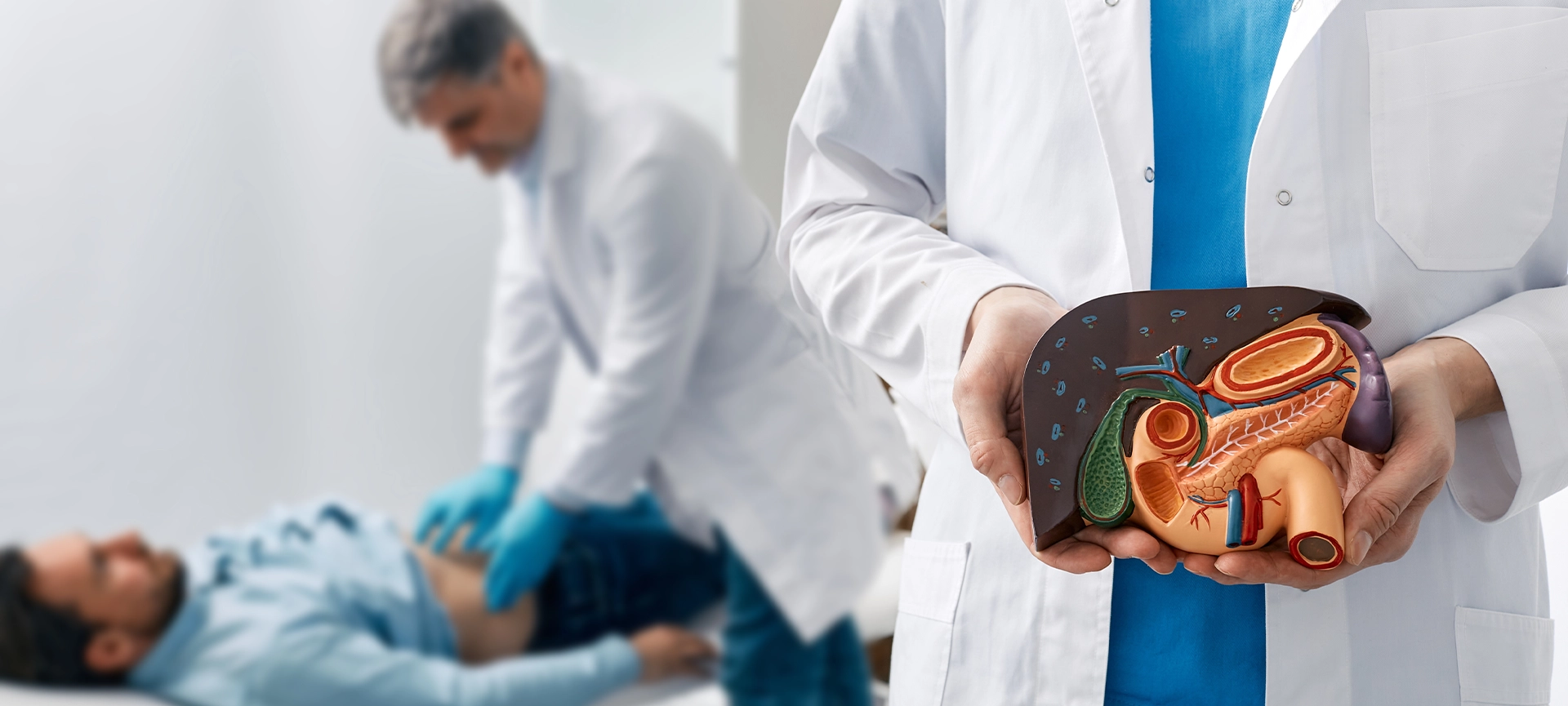What Are The Signs of Liver Damage from Alcohol?
Alcohol misuse is a serious issue that affects countless individuals, and its impact on health can be devastating. One of the most significant consequences of alcohol abuse is liver damage.
As the body’s primary filtering system, the liver processes and removes toxins, including alcohol. When excessive amounts of alcohol are consumed, the liver struggles to keep up, leading to inflammation, scarring, and, ultimately, a decline in its ability to function properly.
This blog post aims to shed light on the signs and symptoms of alcohol-related liver damage, empowering you with the knowledge to recognize potential problems early on.
Early detection is crucial in managing liver disease and preventing further complications. If you or someone you know is concerned about their alcohol use, don’t hesitate to seek help. There are resources available to support you on your journey to recovery.
The Liver: Your Body’s Unsung Hero
Your liver is a powerhouse organ that works tirelessly to keep you healthy. It acts as a filter, removing harmful substances from your blood, including alcohol. It also produces bile, essential for digestion, and stores glucose for energy. It’s a multitasker that plays a vital role in your overall well-being.
However, when you consume excessive amounts of alcohol, you put a significant strain on your liver. It has to work overtime to break down the alcohol, and in the process, harmful byproducts are created. These byproducts can trigger inflammation and damage liver cells. Over time, this repeated damage can lead to serious liver diseases, such as fatty liver, alcoholic hepatitis, and even cirrhosis. In this condition, healthy liver tissue is replaced with scar tissue, impairing its function.
Understanding the delicate balance between alcohol consumption and your liver’s capacity to process it is crucial. Recognizing the early signs of liver damage is essential for taking action and preventing further harm.
Early Warning Signs: Heed Your Body’s Signals
Liver damage often manifests subtly in its early stages, but paying attention to these signs can prompt you to seek help and prevent further complications.
Fatigue and Weakness
The liver plays a critical role in converting nutrients into energy. When damaged, it may not function optimally, leading to a persistent feeling of tiredness and weakness. If you feel unusually exhausted even after adequate rest, it could be a sign of underlying liver issues.
Loss of Appetite and Nausea
As the liver becomes inflamed, it can disrupt your digestive system. This can result in a decreased appetite, nausea, or even vomiting. You may also experience a feeling of fullness or bloating after eating small amounts of food.
Abdominal Pain and Discomfort
An enlarged or inflamed liver can cause pain or discomfort in the upper right abdomen. This pain may be dull and persistent or sharp and intermittent.
Unexplained Weight Loss
Liver damage can impact metabolism and how the body processes nutrients, leading to unintentional weight loss, even if eating habits haven’t changed.
Yellowing of the Skin or Eyes (Jaundice)
A more advanced indicator of liver damage is jaundice, which manifests as a yellowing of the skin and eyes. It occurs when the liver cannot process bilirubin, a yellow pigment produced during the breakdown of red blood cells.
Related Article: The Benefits of a Private Alcohol Rehab British Columbia
More Serious Symptoms: When to Seek Immediate Attention
While the early signs of liver damage may be subtle, it’s essential to be aware of more severe symptoms that warrant immediate medical attention.
- Swelling in the Legs and Ankles (Edema): The liver plays a vital role in regulating fluid balance. When damaged, it can’t produce enough albumin, a protein that helps retain fluid within blood vessels. This can lead to fluid buildup in the legs and ankles, causing swelling.
- Bruising or Bleeding Easily: A healthy liver produces proteins essential for blood clotting. Liver damage can impair this function, making you more prone to bruising or bleeding, even from minor injuries.
- Confusion and Mental Disorientation: In advanced liver disease, toxins can build up in the bloodstream and affect brain function. This can lead to confusion, difficulty concentrating, memory problems, and even changes in personality or behaviour.
- Dark Urine and Pale Stools: Bile, a substance produced by the liver, is responsible for the normal brown colour of stools. When the liver is damaged, it may not process bile properly, causing stools to become pale or clay-coloured. At the same time, the excess bilirubin in the blood can lead to dark urine.
Related Article: Navigating a Complicated Path: Mental Health and Alcohol Abuse
The Stages of Alcohol-Related Liver Disease
Alcohol-related liver disease progresses in stages, each marked by increasing severity and potential for complications. Understanding these stages can help you recognize the seriousness of the condition and the importance of seeking help early on.
1. Fatty Liver: This is the earliest and most common stage of alcohol-related liver disease. It occurs when excess fat accumulates in the liver cells. While fatty liver can cause fatigue and discomfort, it’s often reversible with abstinence from alcohol.
2. Alcoholic Hepatitis: This is a more serious condition characterized by inflammation of the liver. It’s usually caused by heavy drinking over a long period. Symptoms can include jaundice, fever, nausea, vomiting, and abdominal pain.
Alcoholic hepatitis can be severe and may lead to complications like liver failure or bleeding. While it can sometimes be reversed with abstinence and treatment, it can also progress to the next stage – cirrhosis.
3. Cirrhosis: This is the most advanced and irreversible stage of alcohol-related liver disease. It’s characterized by extensive liver scarring, which impairs its ability to function properly. Symptoms of cirrhosis can include jaundice, fatigue, swelling, confusion, and easy bruising or bleeding. Cirrhosis can lead to serious complications like liver failure, bleeding from the digestive tract, and even liver cancer.
Remember, the progression of alcohol-related liver disease is not always linear. Some individuals may skip stages or experience rapid deterioration. That’s why it’s crucial to recognize the signs early on and seek help before irreversible damage occurs.
Related Article: What Are the Stages of Alcohol Withdrawal?
Seeking Help and Treatment: Your Path to Recovery
If you suspect you or a loved one may be experiencing liver damage due to alcohol misuse, it’s imperative to seek help as soon as possible. Early detection and intervention are critical for managing the condition and preventing further complications.
Early Detection is Key
The sooner liver damage is identified, the better the chances of successful treatment and recovery. If you’re experiencing any of the symptoms mentioned earlier, don’t hesitate to consult with a healthcare professional. They can conduct a thorough evaluation, including blood tests, imaging scans, and a liver biopsy, to assess the extent of the damage and recommend appropriate treatment options.
Treatment Options
The specific treatment for alcohol-related liver disease will depend on the severity of the condition and the individual’s overall health. Treatment may include:
- Detoxification: Medically supervised detoxification helps manage withdrawal symptoms and safely eliminate alcohol from the body.
- Medications: Certain medications can help control symptoms, reduce inflammation, and slow liver disease progression.
- Nutritional Therapy: A healthy diet and nutritional supplements can support liver function and overall health.
- Therapy and Support Groups: Counselling and support groups can address the underlying causes of addiction and provide ongoing support for maintaining sobriety.
- Liver Transplant: In severe cases of cirrhosis, a liver transplant may be necessary.
Related Article: Navigating the Path to Recovery: Examining Alcohol Addiction Treatment Programs in Canada
The Importance of Abstinence
The most crucial step in treating and recovering from alcohol-related liver disease is complete abstinence from alcohol. Continuing to drink will only worsen the damage and potentially lead to irreversible complications. Abstinence allows the liver to heal and regenerate, potentially reversing some of the damage in the early stages of the disease.
Remember, seeking help is a sign of strength, not weakness. At Inspire Change Wellness, we offer a safe and supportive environment for men struggling with alcohol addiction. We provide comprehensive treatment programs tailored to your needs.





